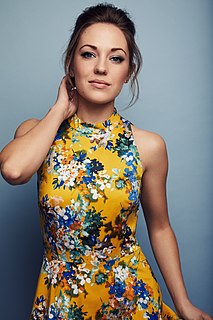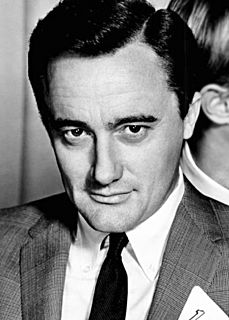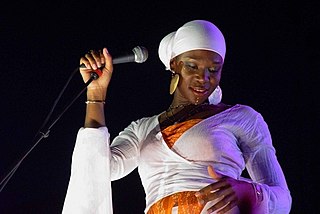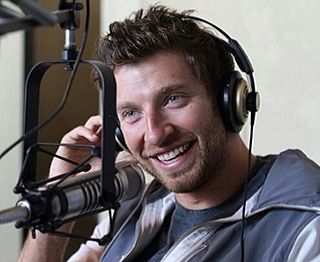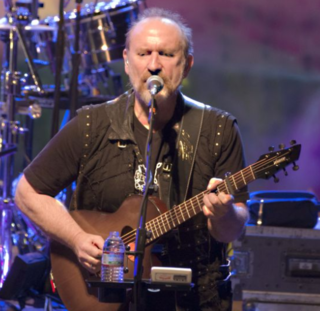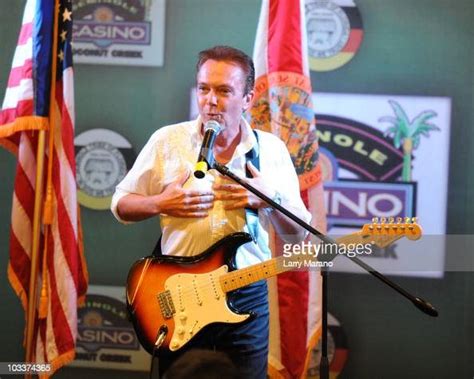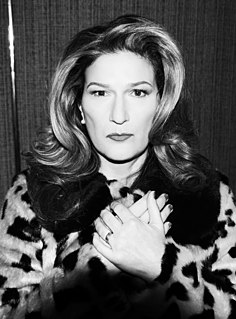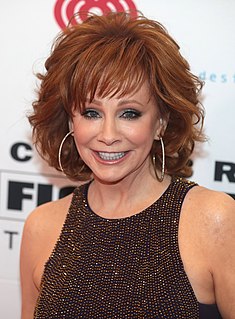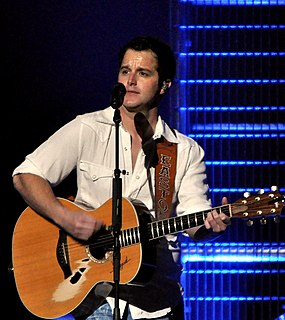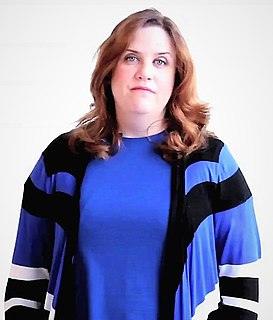A Quote by Stephen Sondheim
On stage, generally speaking, the story is stopped or held back by songs, because that's the convention. Audiences enjoy the song and the singer, that's the point.
Related Quotes
Getting to do 'December Songs' in a cabaret-style format was so interesting because it's like a one-woman song cycle that actually tells a story. It feels like a theatrical experience more than a cabaret because I didn't talk in between. We went from one song to the next, nine songs in a row - bam - I told the story in half an hour.
I think being a singer-songwriter... your job is to tell a story that other people can't really tell themselves. And I really hope that people kinda go: "This happened once and I kind of like this song because I relate to it..." So if at least one of my songs over this tour's that song, then that's really cool.
Now any person who plays an acoustic guitar standing up on stage with a microphone is a folk singer. Some grandmother with a baby in her arms singing a 500-year-old song, well, she's not a folk singer, she's not on stage with a guitar and a microphone. No, she's just an old grandmother singing an old song. The term "folk singer" has gotten warped.
Besides my fast and slooow songs, I further divide my work into three main song types: the ballad or story song, the variation on a theme (saying the same thing over and over and over again) song, and the weird song. It's important to have weird songs, but I find that a little weirdness goes a long way.
That's what is so great about being able to record a 13-song album. You can do a very eclectic group of songs. You do have some almost pop songs in there, but you do have your traditional country, story songs. You have your ballads, your happy songs, your sad songs, your love songs, and your feisty songs.
You always get nervous on stage because when you get up there, you want to do great. The crowd has you pumped up so there are always a little bit of butterflies. That's all part of it. But as far as getting stage fright, clamming up there, not generally, I just enjoy it on stage and have a great time.
If I'm very drunk, I can improvise. But generally speaking, no. Generally speaking, almost all of my work is material that was first done on the printed page. And the shorter ones that you might call poems, I had a stretch from '79, '80, for five or six years, where I wrote a lot of poetry as such. Simply because I was asked to.

